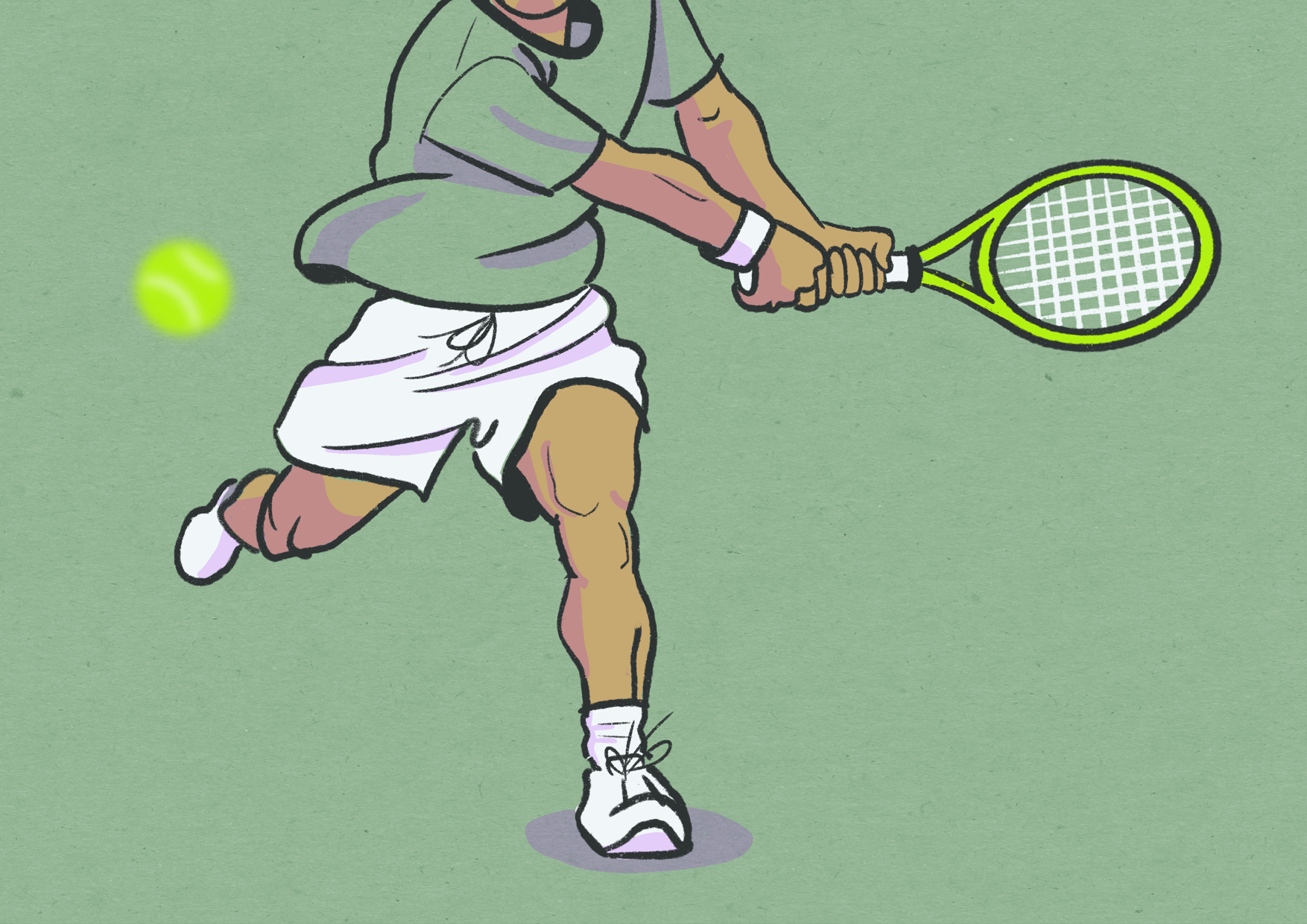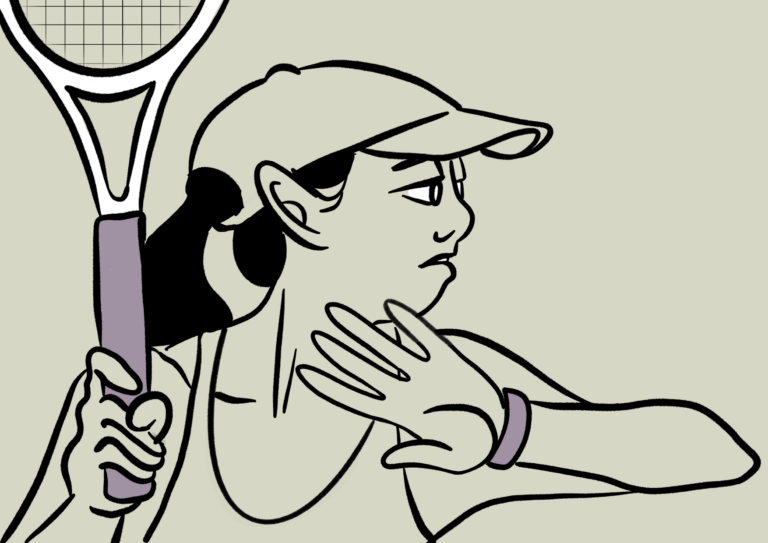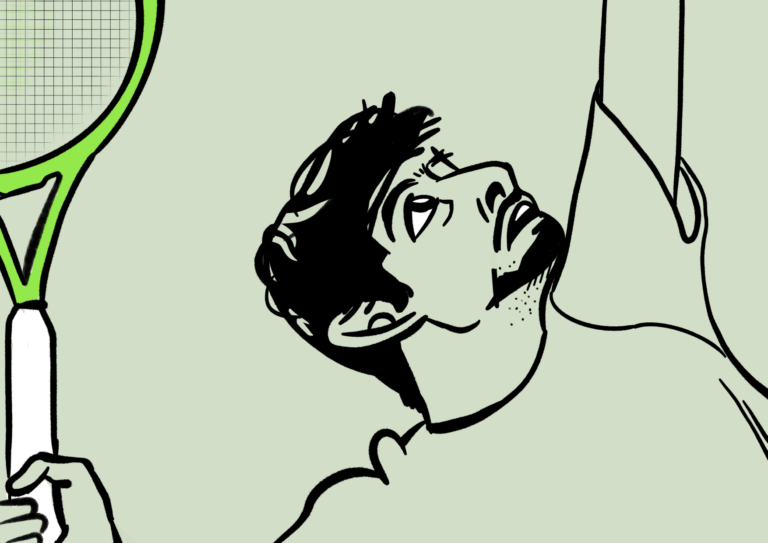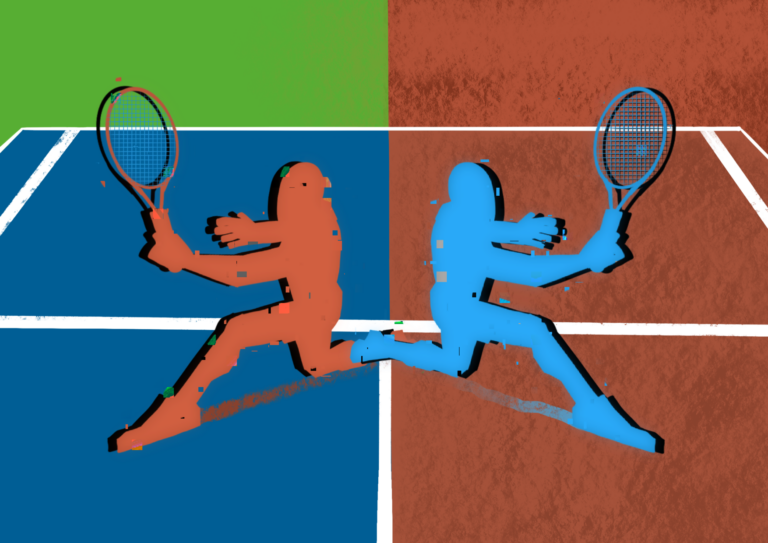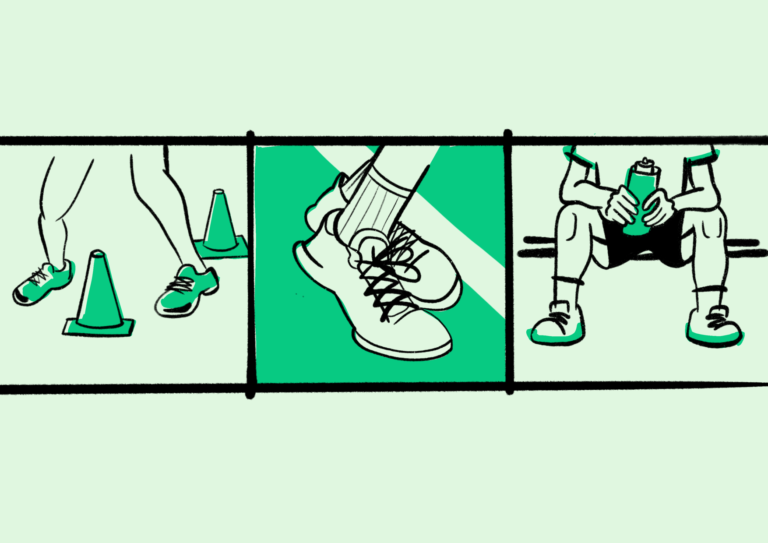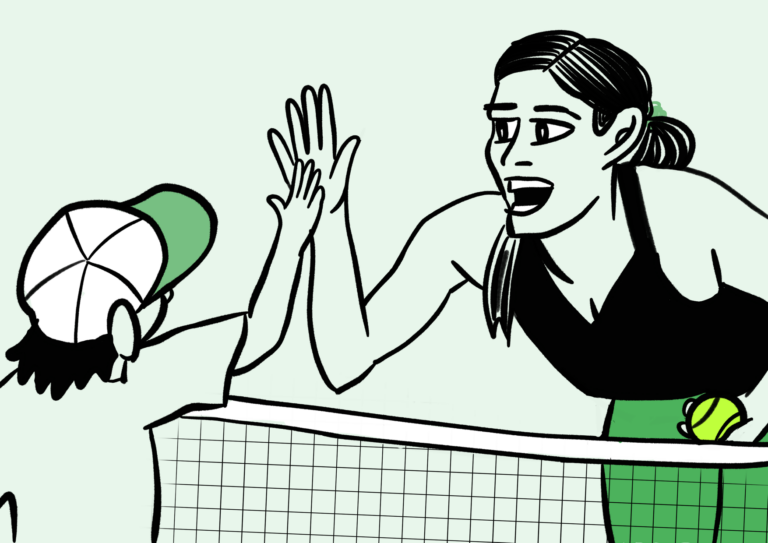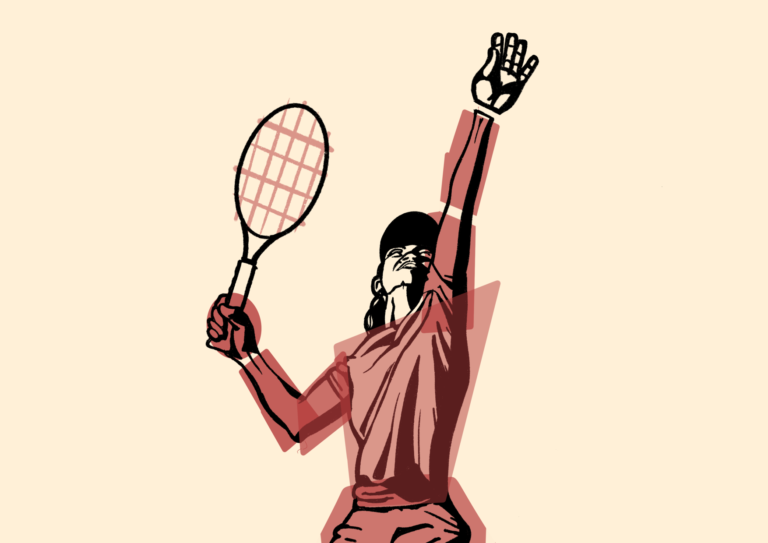6 Pieces of Advice Every Great Tennis Player Swears By
Ever wonder how the best tennis player at your school, rec league, or in the world got to the top of their respective games? Talent plays a role, but experience and guidance are just as crucial. Even greats like Djokovic and Swiatek rely on coaches. Success comes from taking advice, learning from others, and passing on knowledge. With that in mind, here are six of the best pieces of advice I received as a player—lessons you’ll hear repeatedly from any great tennis player.
1. Hit one more ball than your opponent
This may sound like a no-brainer, but the no-brainers often turn into no brain being used at all. It’s so easy and logical that sometimes it’s forgotten. It’s like when you have an overhead that you can make in your sleep, but you somehow manage to hit it into the net. Just like no one wants to miss an easy overhead, no one wants to be the first to surrender. If your opponent hits twenty balls over the net, you hit twenty-one.
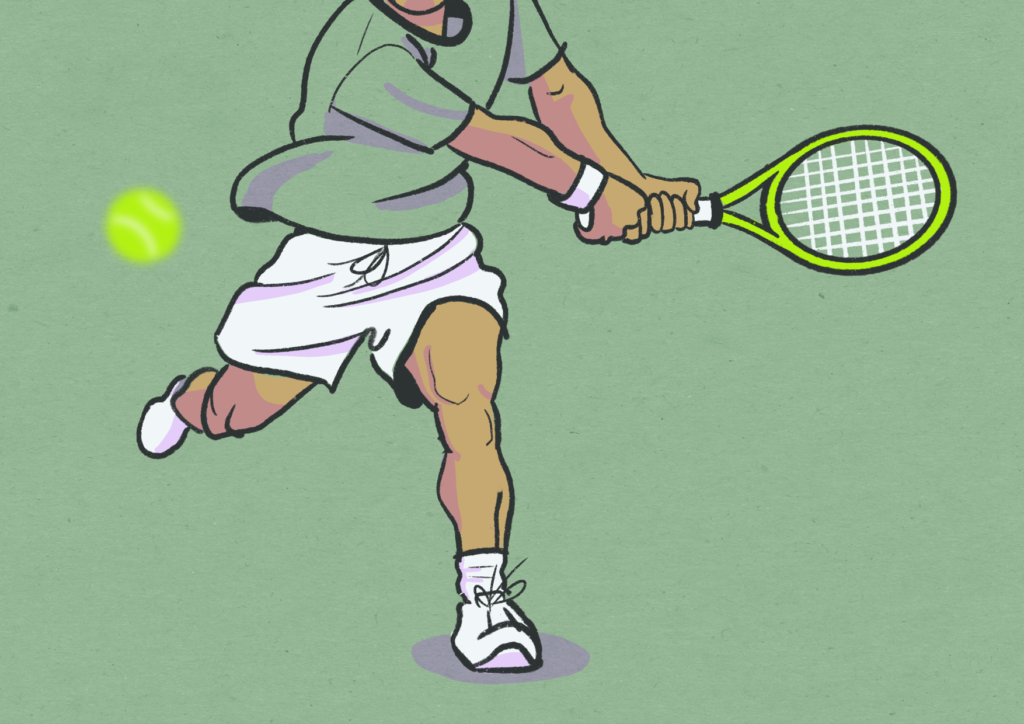
Anything can happen on any given day, any given match, and any given point. If your opponent hits a good approach shot down the line and you, don’t think, just run. They may hit a volleyed winner in the open court but they might also fall prey to an unforced error and then doubt can creep in. Tennis is one of those games where you never know what will happen until it does. Trust me, I have been on both sides of that coin.
2. Never give up
“It ain’t over till it’s over.” This Yogi Berra quote is one of my all-time favorites that I still live by to this day. This quote epitomizes tennis. It’s not like soccer, or football, or basketball. There is no shot clock. All you have is time. You can be down several match points and still come back to win the match because it is never over until you shake your opponent’s hand at the net. That’s the beauty of this sport.
Once I was down a set and 1-5. I took it one point at a time, won that set 7-5, and won the third set fairly easily after that. I could have just given up, considering the fact she was only a few points away from winning the match. Instead, I fought hard and saved my team from losing that day. I’ve also been down 3-9 in a deciding tie-breaker before and came back to win it 11-9. The moral of the story is to never give up. If you ever think about mentally resigning from the match because the other player is about to win, remember to fight until the last point is played.
3. Footwork, footwork, footwork
Footwork in tennis is like the foundation of a house. Without it, everything will fall apart. When you’re playing a match, you’ve already practiced your technique a million times over. You know how to hit the ball. When you start missing a simple groundstroke, however, you immediately blame the stroke, right? I know I do. But the root of the problem almost always stems from your feet. Did you get into position for the ball? Are you balanced? Did you give yourself enough space? Are you too close to the ball? These are usually the reasons for mistakes, and they all rely on your footwork.
Footwork can take you from being a good tennis player to a great tennis player. Improving your footwork will allow for quicker movement, more court coverage, more explosiveness, and the ability to play more to your strengths. You see many players run around their backhand to hit their forehands because that is their preferred shot. But they can only do that because they have pristine footwork. Not to mention, focusing on your footwork when you’re nervous will help relax you both mentally and physically.
4. Quality over quantity
Everyone practices to improve their game and get better, which comes from playing purposefully. Before you step onto the court, know what you want to work on that day. Set a goal so that you can focus on achieving that. There is no point in practicing for four hours if that last hour had no purpose and wasn’t beneficial to you. Some great tennis players need to practice several hours a day, while others only need a couple. I was a player who only needed a couple of hours, or I lost my focus. But I know plenty of people who feel they improved when they were on the court for a while. Whether it’s two hours or four, practice for the time you can stay focused to better yourself. After every session, ask yourself: did I get better today?
5. Control the controllable
The main things you can control when you’re playing tennis are your emotions and your decisions. Respond properly rather than reacting impulsively. You can’t control what your opponent will do or how they will behave. But remember that just as easily as you can see your opponent’s body language, they can see yours. Roger Federer once said, “You play the ball. You don’t play the opponent. Be free in your head. Be free in your shots. Go for it.” You are the toughest opponent you’ll ever face. So be decisive, be smart, trust yourself, and commit. “Losing is not my enemy; fear of losing is my enemy,” Rafael Nadal once said, reminding us there is a difference between playing to win and playing not to lose.
Growing up, I had a sign in my room saying, “Fearless, not reckless.” It was meant to remind me to play smart, without fear. Conversely, playing not to lose usually means playing tentative and tight, which is not a great combination. There is also a difference between losing a match and getting outplayed. Everybody loses, even a great tennis player. It’s part of the game. But it’s better to come off the court saying, “They just played better than me today,” rather than saying, “I should’ve done this or that” I’ve come off the court saying that more times than I care to admit. We all have our “should haves”, “could haves”, and “would haves”, but there are no take backs. Tennis is a mentally tough sport, so focus on controlling what you can and don’t cheat yourself of your full potential.
6. Have Fun
Lastly, remember to have fun. After all, tennis is just a game. It’s so easy to get caught up in the competitive nature of the sport, but don’t lose sight of what drew you to this sport in the first place. Remember your passion for the game before it feels more like a chore than a choice. They say love means nothing to tennis players, but we all love the sport, right?

